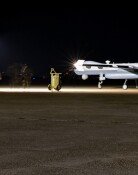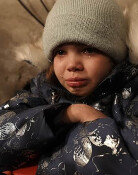Korean researchers work on developing COVID-19 vaccine
Korean researchers work on developing COVID-19 vaccine
Posted May. 08, 2020 07:44,
Updated May. 08, 2020 07:44
As the COVID-19 crisis prolongs, research for its treatment and prevention is accelerating across the world. The first primate model developed by South Korean technologies has begun the initial tests starting this week. A supercomputer operated by a domestic research institute will also provide support to COVID-19 researchers.
Animal tests are the first step to confirm the effects of treatments and vaccines in living organisms. Researchers have utilized animals demonstrating the similar infection process and symptoms of viruses as humans as subjects. Non-human primates, especially macaques, are the most important contributors as they are the most similar to humans.
The infectious disease research center of the Korea Research Institute of Bioscience and Biotechnology has developed two analysis models utilizing macaques showing the symptoms of COVID-19. In early May, these macaques have become the first test subjects of a potential treatment substance developed by a South Korean company.
“A primate model displaying both mild to moderate symptoms is rare world-wide,” said Ryu Chung-min, the director of the infectious disease research center. “We have successfully reduced development period to one-half to one-third of the usual while following all of the complicated procedures in consideration of animal testing ethics at a BSL-3 facility,” the director said. “Several companies have been selected and we will conduct tests on both treatments and vaccines.”
Mice, which play important roles in biology research, are also commonly used in the development of treatments and vaccines. The Korea Mouse Phenotyping Center is working on the development of genetically modified mice, which have ACE2 protein and develop lung lesions, to be used in preclinical trials for treatment and vaccine development.
“We are developing five types of model mice infected with COVID-19, considering the mutations of the virus,” said Sung Je-gyeong, the head of the Korea Mouse Phenotyping Center. “They should be available for supply to research institutes in August after they breed for the first time in May to June.”
ashilla@donga.com







